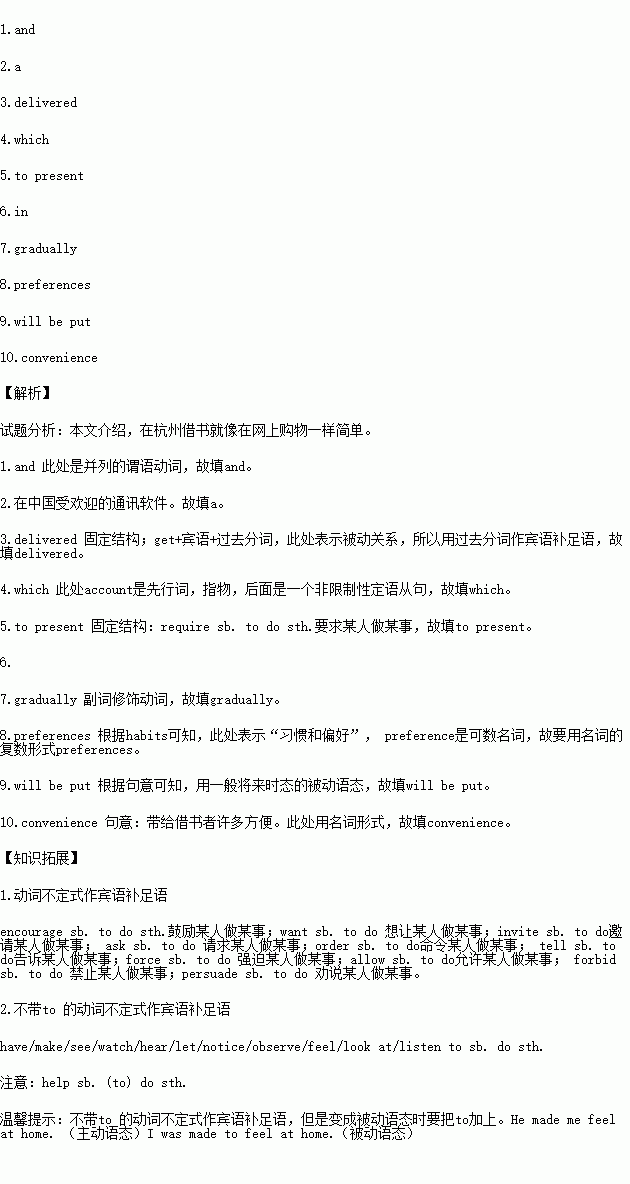题目内容
阅读下面材料,在空白处填入适当的内容(1个单词)或括号内单词的正确形式。
In Hangzhou, borrowing books from the library is now as simple as shopping online: click, pay 1. wait for delivery.
The city’s public library recently launched a program on WeChat, 2. popular Chinese messaging software, enabling its readers to check out books online and get them 3. (deliver) to their homes at low prices.
To enjoy the “Hangzhou enjoyable reading” service, one first needs to follow the library’s official WeChat account, 4. provides a list of books. After picking books, borrowers are required 5. (present)the information such as their library membership cards, cell phone numbers and so on. The selected items will be delivered by express within three days after payments. Each reader can borrow up to 5 books once and 20 books at most 6. total. The books can be borrowed for up to 40 days. Reading now can borrow the library’s most popular books in this way. The online books will be renewed and enriched 7. (gradual) according to readers’ borrowing habits and 8. (prefer). At the end of December, the library’s old and classic books 9. (put) online too, making the total number of books available and bringing borrowers a lot of 10. (convenient)
 阅读快车系列答案
阅读快车系列答案
